Related Research Articles

The Berlin Wall was a guarded concrete barrier that encircled West Berlin of the Federal Republic of Germany from 1961 to 1989, separating it from East Berlin and the German Democratic Republic. Construction of the Berlin Wall was commenced by the government of the GDR on 13 August 1961. It included guard towers placed along large concrete walls, accompanied by a wide area that contained anti-vehicle trenches, beds of nails and other defenses. The primary intention for the Wall's construction was to prevent East German citizens from fleeing to the West.

Sir Charles Spencer Chaplin was an English comic actor, filmmaker, and composer who rose to fame in the era of silent film. He became a worldwide icon through his screen persona, the Tramp, and is considered one of the film industry's most important figures. His career spanned more than 75 years, from childhood in the Victorian era until a year before his death in 1977, and encompassed both adulation and controversy.

The French Revolution was a period of political and societal change in France that began with the Estates General of 1789, and ended with the coup of 18 Brumaire in November 1799 and the formation of the French Consulate. Many of its ideas are considered fundamental principles of liberal democracy, while its values and institutions remain central to modern French political discourse.

Fyodor Mikhailovich Dostoevsky, sometimes transliterated as Dostoyevsky, was a Russian novelist, short story writer, essayist and journalist. Numerous literary critics regard him as one of the greatest novelists in all of world literature, as many of his works are considered highly influential masterpieces.

Miles Dewey Davis III was an American jazz trumpeter, bandleader, and composer. He is among the most influential and acclaimed figures in the history of jazz and 20th-century music. Davis adopted a variety of musical directions in a roughly five-decade career that kept him at the forefront of many major stylistic developments in jazz.
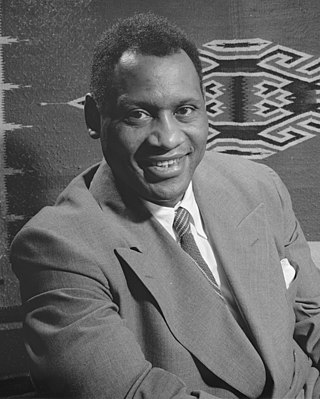
Paul Leroy Robeson was an American bass-baritone concert artist, actor, professional football player, and activist who became famous both for his cultural accomplishments and for his political stances.
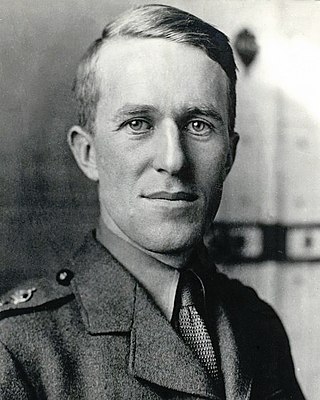
Thomas Edward Lawrence was a British archaeologist, army officer, diplomat, and writer who became renowned for his role in the Arab Revolt (1916–1918) and the Sinai and Palestine Campaign (1915–1918) against the Ottoman Empire during the First World War. The breadth and variety of his activities and associations, and his ability to describe them vividly in writing, earned him international fame as Lawrence of Arabia, a title used for the 1962 film based on his wartime activities.
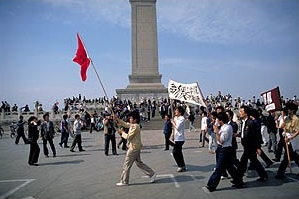
The Tiananmen Square protests, known in China as the June Fourth Incident, were student-led demonstrations held in Tiananmen Square, Beijing, China, lasting from 15 April to 4 June 1989. After weeks of unsuccessful attempts between the demonstrators and the Chinese government to find a peaceful resolution, the Chinese government declared martial law on the night of 3 June and deployed troops to occupy the square in what is referred to as the Tiananmen Square massacre. The events are sometimes called the '89 Democracy Movement, the Tiananmen Square Incident, or the Tiananmen uprising.

Charles II was King of Scotland from 1649 until 1651 and King of England, Scotland, and Ireland from the 1660 Restoration of the monarchy until his death in 1685.
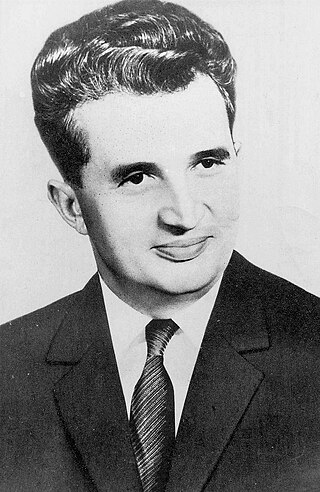
Nicolae Ceaușescu was a Romanian communist politician and statesman. He was the general secretary of the Romanian Communist Party from 1965 to 1989, and the second and last communist leader of Romania. He was also the country's head of state from 1967 to 1989, and widely classified as a dictator, serving as President of the State Council and from 1974 concurrently as President of the Republic, until his overthrow and execution in the Romanian Revolution in December 1989, part of a series of anti-communist uprisings in Eastern Europe that year.
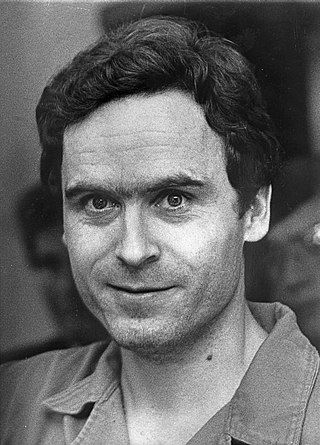
Theodore Robert Bundy was an American serial killer who kidnapped, raped, and murdered dozens of young women and girls during the 1970s and possibly earlier. After more than a decade of denials, he confessed to 30 murders committed in seven states between 1974 and 1978. Bundy's true victim total is unknown.
The Gupta Empire was an ancient Indian empire on the Indian subcontinent which existed from the early 4th century CE to early 6th century CE. At its zenith, from approximately 319 to 467 CE, it covered much of the Indian subcontinent. This period has been considered as the Golden Age of India by historians, although this characterisation has been disputed by some other historians. The ruling dynasty of the empire was founded by Gupta and the most notable rulers of the dynasty were Chandragupta I, Samudragupta, Chandragupta II, Kumaragupta I and Skandagupta.
The incumbent is the current holder of an office or position. In an election, the incumbent is the person holding or acting in the position that is up for election, regardless of whether they are seeking re-election.

Brentford Football Club is a professional association football club based in Brentford, West London, England. The team competes in the Premier League, the top tier of English football. Nicknamed "The Bees", the club was founded in 1889 and played home matches at Griffin Park from 1904 before moving to the Brentford Community Stadium in 2020.

Vlad III, commonly known as Vlad the Impaler or Vlad Dracula, was Voivode of Wallachia three times between 1448 and his death in 1476/77. He is often considered one of the most important rulers in Wallachian history and a national hero of Romania.
For the British science-fiction television programme Doctor Who, List of Doctor Who episodes may refer to:

The Romanian revolution was a period of violent civil unrest in Romania during December 1989 as a part of the revolutions of 1989 that occurred in several countries around the world, primarily within the Eastern Bloc. The Romanian revolution started in the city of Timișoara and soon spread throughout the country, ultimately culminating in the drumhead trial and execution of longtime Romanian Communist Party (PCR) General Secretary Nicolae Ceaușescu and his wife Elena, and the end of 42 years of Communist rule in Romania. It was also the last removal of a Marxist–Leninist government in a Warsaw Pact country during the events of 1989, and the only one that violently overthrew a country's leadership and executed its leader; according to estimates, over one thousand people died and thousands more were injured.

The Revolutions of 1989, also known as the Fall of Communism, was a revolutionary wave of liberal democracy movements that resulted in the collapse of most Marxist–Leninist governments in the Eastern Bloc and other parts of the world. Sometimes this revolutionary wave is also called the Fall of Nations or the Autumn of Nations, a play on the term Spring of Nations that is sometimes used to describe the Revolutions of 1848 in Europe. It may have contributed to the eventual dissolution of the Soviet Union—the world's largest Marxist–Leninist state—and the abandonment of communist regimes in many parts of the world, some of which were violently overthrown. The events, especially the fall of the Soviet Union, drastically altered the world's balance of power, marking the end of the Cold War and the beginning of the post-Cold War era.

The Union of Soviet Socialist Republics (USSR) was dissolved on 26 December 1991 by Declaration № 142-Н of the Soviet of the Republics of the Supreme Soviet of the Soviet Union, formally establishing the dissolution of the Soviet Union as a sovereign state and subject of international law. It also brought an end to the Soviet Union's federal government and General Secretary Mikhail Gorbachev's effort to reform the Soviet political and economic system in an attempt to stop a period of political stalemate and economic backslide. The Soviet Union had experienced internal stagnation and ethnic separatism. Although highly centralized until its final years, the country was made up of 15 top-level republics that served as the homelands for different ethnicities. By late 1991, amid a catastrophic political crisis, with several republics already departing the Union and the waning of centralized power, the leaders of three of its founding members, the Russian, Belorussian, and Ukrainian SSRs, declared that the Soviet Union no longer existed. Eight more republics joined their declaration shortly thereafter. Gorbachev resigned on 25 December 1991 and what was left of the Soviet parliament voted to end itself.

1989 is the fifth studio album by the American singer-songwriter Taylor Swift, released on October 27, 2014, by Big Machine Records. Inspired by 1980s synth-pop, Swift conceived 1989 to recalibrate her artistry to pop after critics disputed her status as a country musician when she released the cross-genre Red (2012) to country radio. She titled 1989 after her birth year as a symbolic artistic rebirth and enlisted Max Martin, who produced Red's electronic-influenced pop tracks, as co-executive producer.